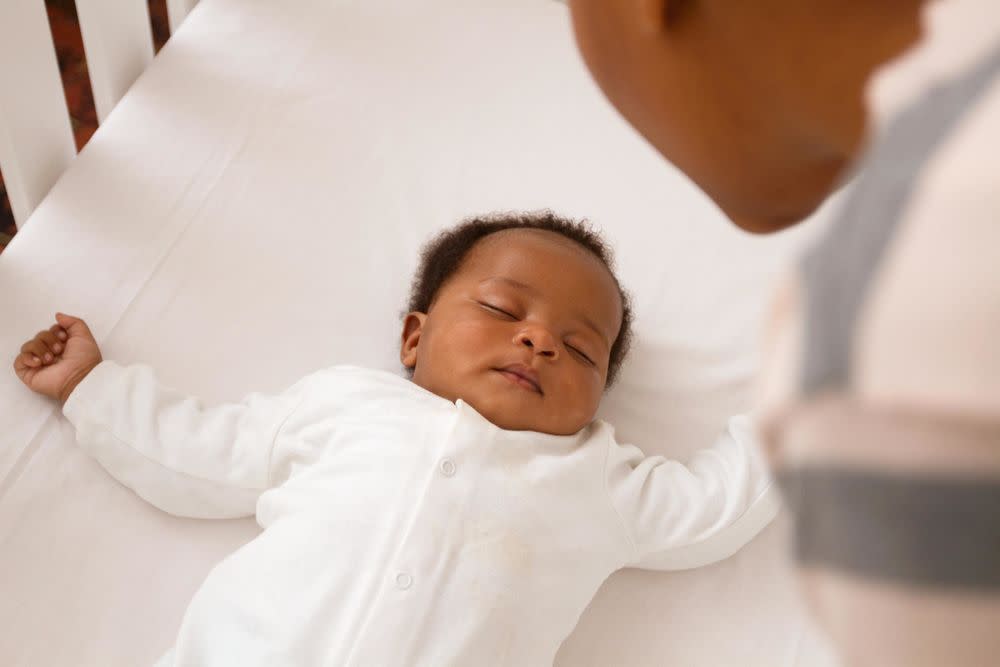Think Twice About Wearable Baby Monitors, Say Experts

Wearable baby monitors exploded on the parenting scene with resounding success by promising parents peace of mind. You could place one on your baby's person and rest assured that he or she was breathing evenly, sleeping soundly, and in no danger.
But if these sort of monitors ever struck you as too good to be true, you might have been on to something: According to an expert opinion published in JAMA in 2017, there's no proven value to these types of monitors.
Wearable monitors' popularity rests on some pretty big claims: Most notably, they're supposed to reduce SIDS risk—but could it really be as simple as just strapping a device on to your little one's foot, thigh or diaper?
RELATED: New Ways to Reduce the Risk of SIDS
According to the new expert opinion, there's not enough scientific proof to support this idea—and worse yet, experts believe there could be harm associated with using these items. More specifically, experts caution that the devices may set off false alarms and lead to unnecessary emergency room visits or medical testing.
Owlet is one of the major players where wearable devices are concerned, and their baby monitors were evaluated for the purpose of this opinion. To be fair, Owlet's team responded to this opinion, with a statement on the company's web site:
"We have invested millions of dollars into data collection and storage, as well as the creation of a clinical team to focus on our mission to further knowledge of the issues affecting infant health... A number of our current customers are physicians and healthcare providers, who have expressed support for the product and the information it provides through its continued use with their own children. Due to innovations developed by Owlet to lessen false alarms, many users will use the Owlet Sock for several months without ever getting a false alarm, greatly reducing the risk overdiagnosis. Additional product enhancements and features include use of wireless technology to eliminate cords as well as a smartphone connectivity integration that fits parents’ lifestyle."
Owlet's team also added that they will be seeking FDA clearance for a medical version of the product, but, to date, the FDA has not approved a baby product to prevent or reduce the risk of SIDS.
But is the opinion saying baby monitors like these are to be avoided at all costs? Not quite—the main takeaway here seems to be that wearables shouldn't be treated like medical devices because, well, they're not.
"Striking a balance between fostering innovation while providing appropriate and efficient regulation in the rapidly expanding mobile medical app market is challenging," the authors, a group of pediatricians wrote in the opinion. "Until these monitors have been thoroughly evaluated and guidelines for use have been established, the recommendations physicians should give to parents who ask about these products is simple. There is no evidence that consumer infant physiologic monitors are life-saving, and there is potential for harm if parents choose to use them."

